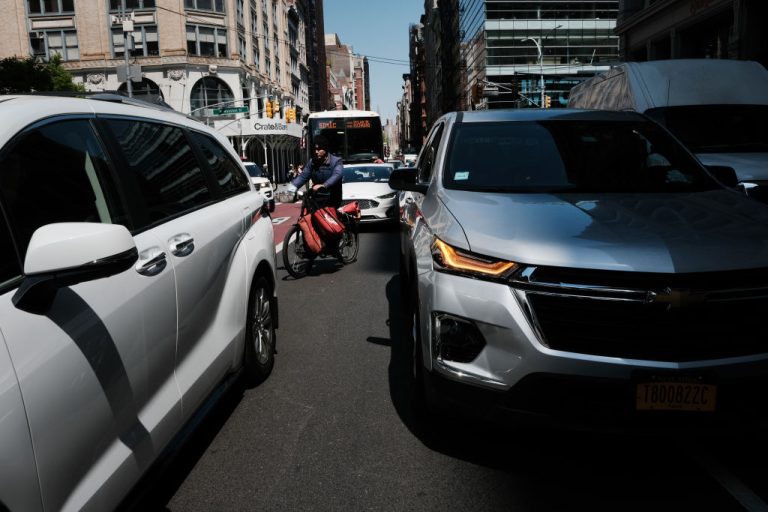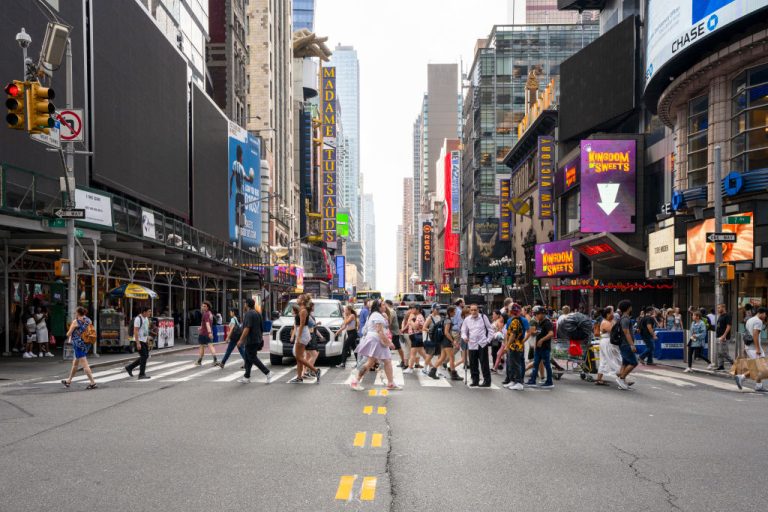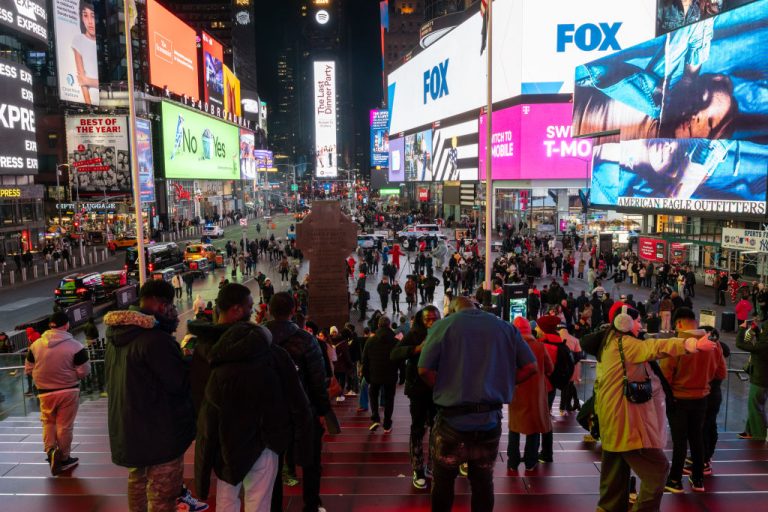According to the New York Post, New York State Governor, Kathy Hochul, is ditching the implementation of the highly contentious MTA congestion pricing scheme that was scheduled to go into effect at the end of June due in large part to the ongoing cost of living crisis gripping the state.
A source told The Post, “The governor is concerned about the economic recovery in Manhattan and the cost of living. New Yorkers are struggling. It’s not the right time to do it.”
Hochul has been facing increased pressure to abandon plans to implement the $15 toll which would have charged drivers for entering Manhattan below 60th Street.
Currently, the plan is to delay the implementation of the scheme, not fully abandon the legislation, meaning it could be implemented in the future.
“I think the Post spotlighting the real concerns of working New Yorkers definitely impacted the conversation. It’s tone deaf to charge New Yorkers $3,600 every year when they can’t afford to put food on the table,” another source familiar with the matter told The Post.
Success
You are now signed up for our newsletter
Success
Check your email to complete sign up
“She just doesn’t think we can ask New Yorkers to pay a new fee at a time when the cost of living has gone up so dramatically.”
READ MORE:
- Passport to Taiwan, New York’s Largest Asian American Festival, Celebrates Two Decades of Festivities
- New York’s Hidden Treasure – Beautiful, Ethical and Economical Herkimer Diamonds
- Kenneth Paek Gains Momentum in NY’s Assembly Race as Competitor Bows Out
Decision met with cheers
The decision was met with cheers from both sides of the political aisle on Wednesday.
Rep. Nicole Malliotakis (R-NY) told The Post, “It is welcome news that Governor Hochul is considering delaying congestion pricing, scheduled to begin June 30, due to our pressure, the public‘s outcry and concerns it will impact Democrats in November’s election.”
Rep. Josh Gotteimer (D-NJ) also celebrated the impending announcement, saying, ““After a five-year fight, New York appears to have done right by hardworking Jersey families and backed off their outrageous Congestion Tax.”
“I want to thank Gov. Hochul, Gov. [Phil] Murphy, Fort Lee Mayor [Mark] Sokolich, all involved elected officials, and especially the tireless advocates who focused on the key facts: The Congestion Tax would have caused more traffic and cancer-causing pollution for families in northern Jersey and the outer boroughs,” he added.
During a morning press conference, NYC Mayor Eric Adams, supported the decision to delay the scheme saying that congestion pricing “should not be an undue burden on everyday New Yorkers.”
Congestion pricing was intended to raise money for public transportation, reduce city traffic and improve air quality, however there were not many who supported it.
The legislation prompted a number of lawsuits, including one from the Trucking Association of New York, who blasted the additional tolls on transport trucks as “excessive.”
READ MORE:
- Little Neck-Douglaston’s Memorial Day Parade Pays Tribute to Fallen Heroes, Activists
- Dozens of Municipal Officials Ask Biden Administration to Grant Undocumented Migrants Work Permits
- Spotlight on Dorey Houle Republican Candidate Vying For the Conservative Line in This June’s Primary
‘Betrayal of our trust’
Not everyone is happy with the decision.
Previously, rumors that Hochul was going to ditch the scheme were met with hostility from mass transit advocates.
“New York City public transit riders gave Governor Hochul her margin of victory in the 2022 election. Stopping congestion pricing before it even starts would be an outrageous betrayal of our trust,” Betsy Plum, executive director of Rider Alliance, said.
“Congestion pricing is the only public policy that can make our subway more reliable and accessible, speed up slow bus service, and help clear the air as wildfire smoke thickens. Governor Hochul must turn it on June 30 as planned,” Plum argues.
Congestion pricing legislation was passed five years ago under then-Gov. Andrew Cuomo however since then the legislation has remained largely unpopular.
A Siena College poll, released in April, indicated that about 63 percent of New Yorkers oppose the scheme, Politico reported.







